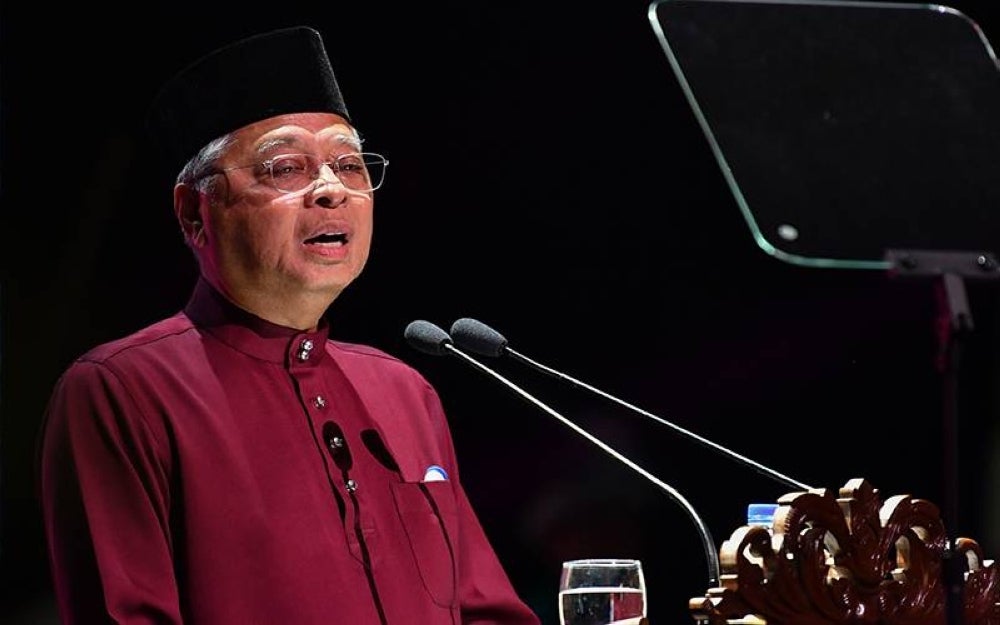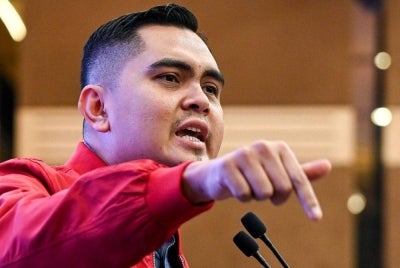PM recommends establishment of Syariah Compliant Commission

PUTRAJAYA - Regulation of the halal industry in the country can be consolidated through the establishment of a Syariah Compliant Commission, said Prime Minister Datuk Seri Ismail Sabri Yaakob.
In his keynote address at the Tun Abdullah Ahmad Badawi Lecture today, Ismail Sabri said currently, the existing regulatory proposal is more limited to the Islamic financial sector through Bank Negara.
Malaysia and the Securities Commission, while the Islamic Development Department (Jakim) regulates the halal industry.
"As such, more comprehensive regulations can be consolidated for example through the establishment of a Syariah Compliant Commission.
"I urge that this recommendation be given due attention so that the aspiration to make Malaysia the Main Reference Model in the field of Halal Economy can be realised," he said here.
Also present at the event were Public Service Department director-general Datuk Seri Mohd Shafiq Abdullah, Tun Abdullah Ahmad Badawi Legacy Association chairman Datuk Jefridin Atan, and Universiti Kebangsaan Malaysia vice-chancellor Professor Datuk Dr Mohd Ekhwan Toriman.
Ismail Sabri said the Malaysian economy was currently facing uncertainty at the global level as well as stiff competition in the regional economy.
He said the role and contribution of the local halal economy to the national economy could be improved further to be more significant.
"Based on the Global Islamic Economy Report (2016/2017 to 2020/2021), Malaysia ranks first in terms of global Islamic economic indicator score. In fact, Malaysia’s performance was top in the Islamic financial sector.
"However there is still room for improvement in six other sectors, namely halal food, tourism, fashion, cosmetics and pharmaceuticals, media and recreation," he said.
He said currently, the halal economy was seen to be covering and developing more around the financial and food sectors, therefore justifying the need to focus and redress aspects of the halal economy.
He said the rapid growth of Islamic finance was driven by the community's demand for a usury-free system, which has elements of gharar and masyir (speculation or gambling) besides the fact that regulations and models for the expansion of the Islamic financial system were available globally.
Therefore, he said, the Halal Economy Master Plan should be pursued and undertaken by stakeholders to empower the halal economy and this could be accomplished by enhancing its role in the various halal economy sectors in the development of the country.
Ismail Sabri said the halal economy combines elements of religious needs in business by emphasising human relations based on brotherhood and equality, while all the resources on the earth are fully controlled and owned by Allah.
"As such, the halal economy must be promoted as one of the competitive systems and contributors to the national economy.
"In addition, the halal product market should also be expanded to non-Muslim countries," he said.
The halal product industry in Malaysia was first given attention in the Industrial Master Plan II, 1996-2005, followed by the Third National Agricultural Policy, 1998-2010, during which the industry was developed because Malaysia had infrastructure facilities and skills in processing technology.
"The importance of the halal industry was also emphasised in the Ministry of International Trade and Industry (MITI) Third Industrial Master Plan, 2006-2020. This master plan had a strategic thrust, among them to make Malaysia a regional centre for halal products and services such as pharmaceuticals, medical devices, food processing, textiles and clothing," he said.
In the meantime, Ismail Sabri said a human capital development programme in the halal economy field is expected to be implemented at the international level.
"The Higher Education Ministry, Jakim, Halal Development Corporation and the industry are urged to support this noble effort," he said.
At the event, Ismail Sabri also launched the Halal Economy Endowment Fund established by the Legacy and Hadahri Global Foundation in collaboration with UKM Faculty of Economics and Management, with an initial fund of RM 1 million
"The main objective of the endowment fund is to develop leadership in research and education in halal economics. This covers the fields of Science and Technology and the Humanities.
"I welcome the establishment of the Halal Economy Endowment Fund and hope that this effort will strengthen academic and intellectual activities in the field so that Malaysia can lead the halal economy agenda at the tertiary level," he said. - BERNAMA
Download Sinar Daily application.Click Here!














